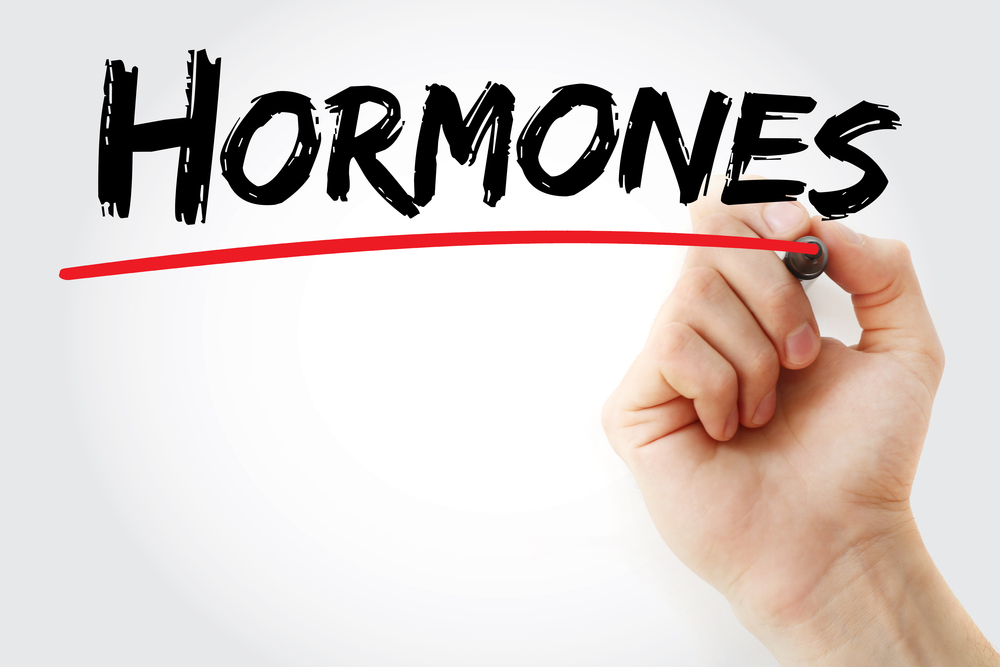Adrenal Glands and Female Hormonal Imbalance
Everyone has two adrenal glands. The adrenal glands are small, walnut-sized structures attached to the top of each kidney. They are part of your endocrine system, which is a collection of glands that produce hormones in relation to stress. Although they are responsible for numerous hormone-related functions in our body, specific disorders can be acquired when the adrenal glands produce too few or too many hormones.
What Hormones Do Adrenal Glands Produce?
How Do Adrenal Glands Imbalance Female Hormones?
Cortisol is the main adrenal hormone and is made from progesterone. Every molecule of cortisol you produce in your body, when you are under stress, decreases your progesterone level. Thus, the more you’re under stress, the more female hormone imbalance will occur as your progesterone levels drop. This leads to estrogen dominance in the woman’s body.
Signs of estrogen dominance:
- Decreased sex drive
- Irregular or otherwise abnormal menstrual periods
- Bloating (water retention)
- Breast swelling and tenderness
- Fibrocystic breasts
- Headaches (especially premenstrually)
- Mood swings (most often irritability and depression)
- Weight and/or fat gain (particularly around the abdomen and hips)
- Cold hands and feet (a symptom of thyroid dysfunction)
- Hair loss
- Thyroid dysfunction
- Sluggish metabolism
- Foggy thinking, memory loss
- Fatigue
- Trouble sleeping, insomnia
- PMS
Other Female Hormone Imbalance Symptoms
Food Cravings
Menopause Imbalances
Skin Problems
Fatigue
Pregnancy Disorders
A mother with adrenal gland problems suffering from sub-optimal estrogen and/or progesterone levels will often have trouble getting pregnant. She is also at the risk of miscarriage in the first trimester. Sufficient estrogen is needed to insure ovulation will occur and sufficient progesterone levels are necessary during the luteal phase to keep and maintain a pregnancy.
Sometimes women have one or both of these problems. These symptoms are common, but they are not normal. It has been found that the ovaries are usually not the problem with women having a hard time getting pregnant. However, it is a symptom of one or more underlying problems of stress causing an imbalance in the female hormones. A well-trained Certified Functional Medicine Practitioner can test the three main body systems (neuroendocrine, gastrointestinal, and detoxification). After identifying external as well as internal stressors, the doctor can help correct these systems and bring the hormonal imbalance back to normal, many times resulting in a normal pregnancy.
How to Improve the Function of the Adrenal Glands
Avoid Stress
Get Sufficient Sleep
Take Vitamins and Herbs to Improve Hormones
Maintain a Healthy Gut
Our American lifestyle, poor diet choices, toxic overload, and bacterial imbalances all contribute toward a leaky gut. It is no wonder that the concept of leaky gut is widely discussed as the cause of various cancers and autoimmune diseases. Leaky gut gives rise to increased permeability of the intestinal wall that allows various toxins and bacteria to enter the circulation and spread to the rest of the body. These toxins can cause various food allergies or sensitivities. Leaky gut is also responsible for various autoimmune diseases like Hashimoto’s thyroiditis (symptoms consists of fatigue, depression, nervousness, increased weight), nutritional deficiencies like Vitamin B12, depression, and inflammatory disorders.
The destruction of the normal gut flora by irrational use of antibiotics lead to bacterial imbalance. The microbiome or the beneficial bacteria that are the natural inhabitants of the gut form the second immune system. When deranged, this leads to many infections. Therefore, as mentioned earler, the adrenal glands are responsible for regulating the immune system in the gut. The adrenal glands again, work continuously attempting to fight off the dangerous pathogens and attempt to decrease inflammation in the gut and throughout the body as a whole. Detection of these pathogens by way of a stool test followed by the 5 R GI Program.
The elements of the 5R program for digestive health are described briefly below.
- Remove: Remove stressors: get rid of things that negatively affect the environment of the GI tract including allergic foods, parasites or other bad bugs such as bacteria or yeast. This might involve using an allergy “elimination diet” to find out what foods are causing GI symptoms or it may involve taking drugs or herbs to eradicate a particular bug.
- Replace: Replace digestive secretions: add back things like digestive enzymes, hydrochloric acid and bile acids that are required for proper digestion and that may be compromised by diet, drugs, diseases, aging, or other factors.
- Reinoculate: Help beneficial bacteria flourish by taking in probiotic foods or supplements that contain the so-called “good” bacteria such as bifidobacteriaand lactobacillus species, and by consuming the high soluble fiber foods that good bugs like to eat, called “prebiotics.”
- Repair: Help the lining of the GI tract repair itself by supplying key nutrients that can often be in short supply in a disease state, such as zinc, antioxidants (e.g. vitamins A, C, and E), fish oil, and the amino acid glutamine.
- Rebalance: Pay attention to lifestyle choices – sleep, exercise and stress can all affect the GI tract.

